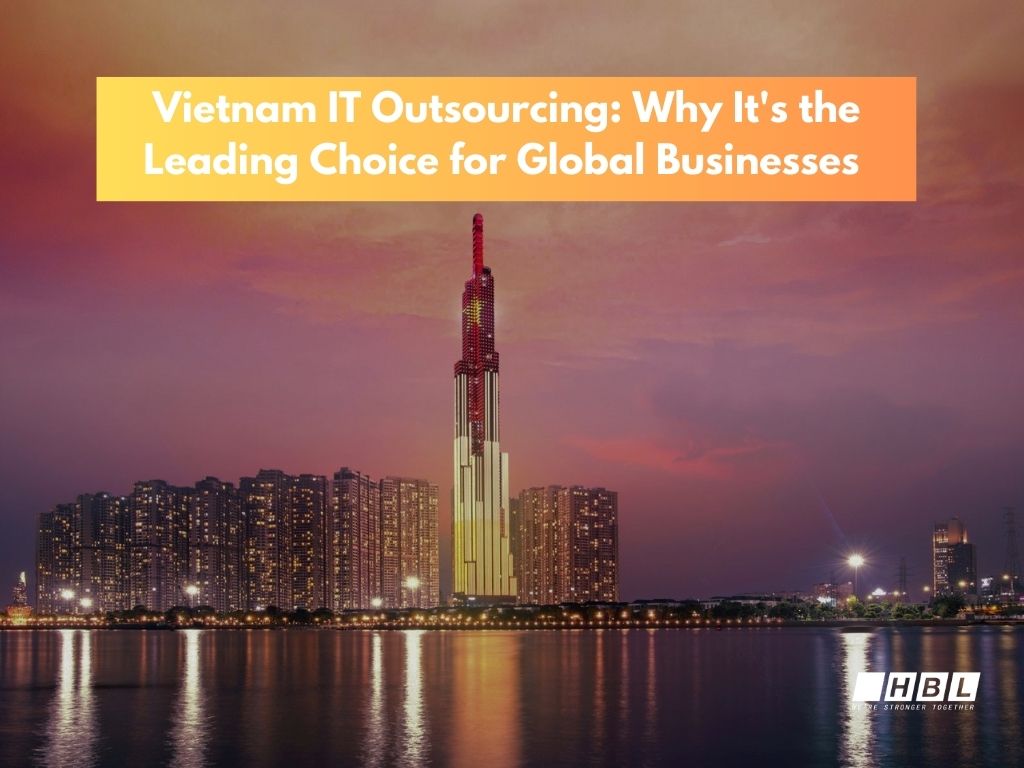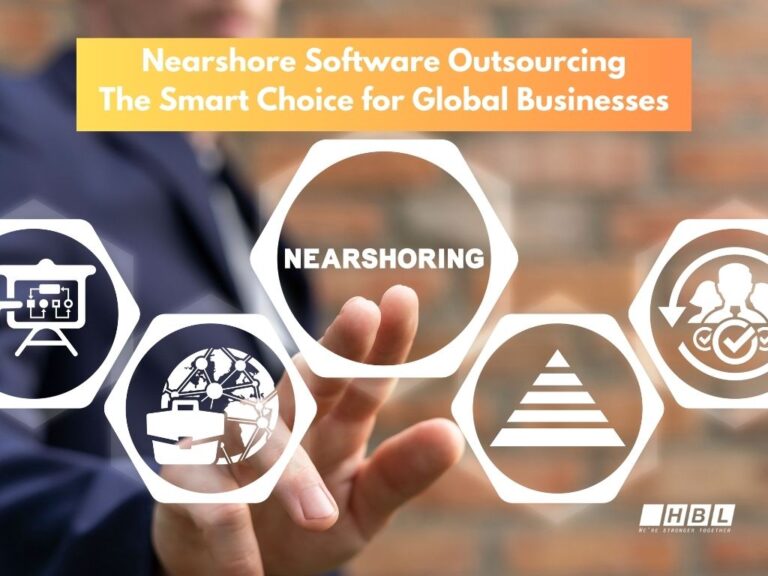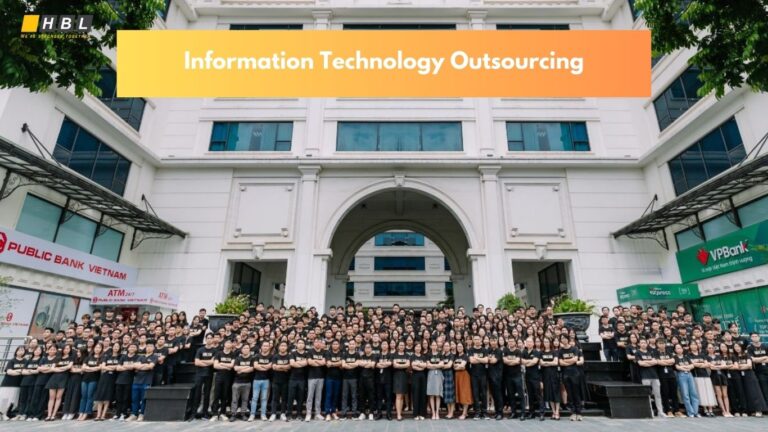Vietnam has emerged as one of the leading destinations for IT outsourcing, attracting business from around the world. With a highly skilled workforce, competitive costs, and a rapidly growing technology sector, competitive cost, and a rapidly growing technology sector. With government support, strategic location, and talented developers, it’s an ideal choice for software development and digital transformation. This article explores the key benefits of Vietnam IT outsourcing for businesses seeking quality and innovation.
What does an IT outsourcing company do?
An IT Outsourcing company provides specialized IT services to businesses by taking on specific tasks, projects, or entire IT operations. These services allow companies to leverage external expertise, reduce costs, and focus on their core business. Here are some main areas of what an IT outsourcing company does:
1. Custom Software Development
- Custom Applications: Designing and building tailor-made software solutions, mobile apps, or web applications to meet specific business requirements.
- End-to-End Development: Handling everything from requirements gathering, design, and coding to testing, deployment, and ongoing maintenance.
- Tech Stack Expertise: Proficiency in popular programming languages and frameworks such as Python, Java, .NET, React, Angular, and more.
2. IT Support and Maintenance
- Technical Support: Offering 24/7 IT support services, including troubleshooting and resolving technical issues.
- Proactive Maintenance: Monitoring IT systems to ensure uptime, reliability, and optimal performance.
- Helpdesk Services: Acting as the first point of contact for resolving user and system issues.
3. Cloud Services
- Cloud Migration: Assisting businesses in moving their infrastructure to cloud platforms like Amazon Web Services (AWS), Microsoft Azure, or Google Cloud.
- Cloud Management: Optimizing cloud resources, ensuring cost efficiency, and managing security.
- Cloud-Native Development: Building applications specifically designed for cloud environments.
4. Cybersecurity Services
- Threat Protection: Implementing firewalls, intrusion detection systems, and endpoint protection.
- Compliance: Ensuring systems meet regulations such as GDPR, HIPAA, or ISO standards.
- Risk Assessments: Conducting penetration testing and vulnerability analysis to identify and mitigate risks.
- Incident Response: Providing immediate response and recovery services during security breaches.
5. Quality Assurance (QA) and Testing
- Manual and Automated Testing: Ensuring software is bug-free and performs as expected.
- Performance Testing: Validating scalability and responsiveness under load.
- Compliance Testing: Verifying that applications adhere to industry standards and protocols.
6. IT Consulting and Strategy
- Technology Roadmaps: Creating long-term IT strategies to align technology with business objectives.
- Digital Transformation: Guiding businesses in modernizing their operations through emerging technologies such as AI, IoT, or blockchain.
- Cost Optimization: Advising on tools, processes, and outsourcing strategies to reduce expenses.
7. Data Services
- Data Management: Setting up and managing databases for efficient storage and retrieval.
- Analytics and Business Intelligence: Providing insights from data to improve decision-making.
- Big Data Solutions: Implementing data pipelines and analytics tools for large-scale data processing.
8. Infrastructure Management
- Network Administration: Managing and maintaining company networks, including LAN, WAN, and VPN.
- Server Management: Handling server setups, virtualization, and maintenance.
- Disaster Recovery and Backup: Developing plans to ensure business continuity during outages or failures.
9. Staff Augmentation and Dedicated Teams
- Flexible Talent Access: Providing skilled IT professionals to augment a company’s in-house team for short- or long-term projects.
- Dedicated Teams: Assembling full teams to handle specific projects or ongoing tasks, often as an extension of the client’s workforce.
- Cost-Effective Scaling: Allowing businesses to scale their IT resources up or down as needed without permanent hiring.
10. Emerging Technologies and Innovation
- AI and Machine Learning: Developing AI-powered tools, chatbots, or predictive analytics solutions.
- Blockchain Development: Building decentralized applications and systems for secure and transparent transactions.
- Internet of Things (IoT): Creating connected device ecosystems for automation and data collection.
- Automation: Implementing robotic process automation (RPA) to streamline repetitive tasks.
11. Outsourcing Models
- Offshore Outsourcing: Partnering with companies in distant countries for cost advantages and a larger talent pool.
- Nearshore Outsourcing: Working with providers in neighboring countries for cultural and time zone alignment.
- Onshore Outsourcing: Engaging providers in the same country for closer collaboration and accessibility.
12. Industry-Specific Solutions
- E-commerce: Developing platforms, payment gateways, and customer experience tools.
- Healthcare: Providing HIPAA-compliant solutions and healthcare data management.
- FinTech: Building secure systems for banking, payments, and financial services.
- Education: Developing e-learning platforms and digital tools for schools and universities.
Types of IT Outsourcing Models
IT outsourcing is not a one-size-fits-all solution; businesses can choose from three primary models based on their specific needs: onshore, offshore, and nearshore outsourcing. Each model offers distinct advantages and challenges, depending on factors like cost, proximity, and communication.
1. Onshore Outsourcing
Onshore outsourcing refers to hiring an IT service provider located in the same country as the client.
Advantages:
- Cultural and Language Alignment: Since the service provider operates within the same country, communication is seamless, and cultural differences are minimal.
- Time Zone Convenience: Being in the same time zone allows for real-time collaboration and quick issue resolution.
- Compliance: Onshore providers are familiar with local laws and regulations, ensuring better compliance with data protection and legal requirements.
Challenges:
- Higher Costs: Onshore outsourcing is typically more expensive than offshore or nearshore options due to higher labor costs.
2. Offshore Outsourcing
Offshore outsourcing involves partnering with IT service providers located in distant countries, often in regions like Asia, Eastern Europe, or Latin America.
Advantages:
- Cost Efficiency: Labor costs in offshore locations are significantly lower, making this model highly cost-effective.
- Access to Talent: Offshore providers offer access to a large pool of skilled IT professionals, often with specialized expertise.
- 24/7 Operations: Time zone differences can be an advantage for round-the-clock operations, especially for tasks like customer support.
Challenges:
- Communication Barriers: Differences in language, culture, and time zones can create challenges in collaboration.
- Quality Control: Maintaining consistent quality and ensuring alignment with the client’s expectations can be more difficult.
3. Nearshore Outsourcing
Nearshore outsourcing refers to partnering with IT service providers in neighboring or nearby countries.
Advantages:
- Proximity: The geographical closeness facilitates better collaboration and occasional in-person meetings.
- Cost-Effective Balance: Nearshore outsourcing offers a middle ground in terms of cost—cheaper than onshore but more expensive than offshore.
- Cultural Compatibility: Being in a similar region often results in fewer cultural and linguistic barriers.
Challenges:
- Limited Talent Pool: Compared to offshore outsourcing, nearshore providers may have a smaller talent pool.
- Moderate Costs: While less expensive than onshore, nearshore outsourcing is not as cost-effective as offshore options.
Why Choose IT Companies in Vietnam?
Vietnam has established itself as a top destination for IT outsourcing, offering a compelling mix of advantages:
- Cost-Effective Solutions: Vietnamese IT companies provide high-quality services at competitive rates, helping businesses achieve greater value for their investment.
- Skilled Workforce: The country boasts a rapidly growing pool of highly trained IT professionals specializing in AI, blockchain, cloud computing, and software development. Vietnam’s education system and technical training programs ensure a steady flow of top talent.
- Government Support and Infrastructure: Proactive government policies and investments in technology infrastructure have created a thriving IT ecosystem, fostering innovation and growth.
- Cultural Compatibility and Work Ethic: Vietnamese professionals are known for their adaptability, teamwork, and dedication, making international collaboration seamless and productive.
- Strategic Time Zone: For businesses in the Asia-Pacific region, Vietnam’s favorable time zone facilitates efficient communication and quicker project delivery.

The 10 Leading IT Outsourcing Companies in Vietnam
Vietnam has become a global hub for IT outsourcing, offering world-class services at competitive prices. Below is a detailed look at the top 10 IT outsourcing companies in Vietnam, their expertise, and why they stand out in the competitive IT landscape.
1. FPT Software
Overview:
As Vietnam’s largest IT outsourcing company, FPT Software has established itself as a leader in software development and digital transformation. The company operates in over 26 countries and has served Fortune 500 companies across various industries.
Key Services:
- Custom software development
- Cloud computing and migration
- Artificial intelligence and machine learning solutions
- Internet of Things (IoT) applications
2. HBLAB
Overview:
HBLAB JSC has established itself as one of Vietnam’s leading IT outsourcing companies, renowned for its innovative solutions and customer-centric services. With a talented team of over 500 IT engineers, including business-ready bilingual BrSEs proficient in Japanese, HBLAB delivers high-quality, customized solutions at competitive costs. The company is a trusted technology partner for global businesses, driving digital transformation and efficiency across industries.
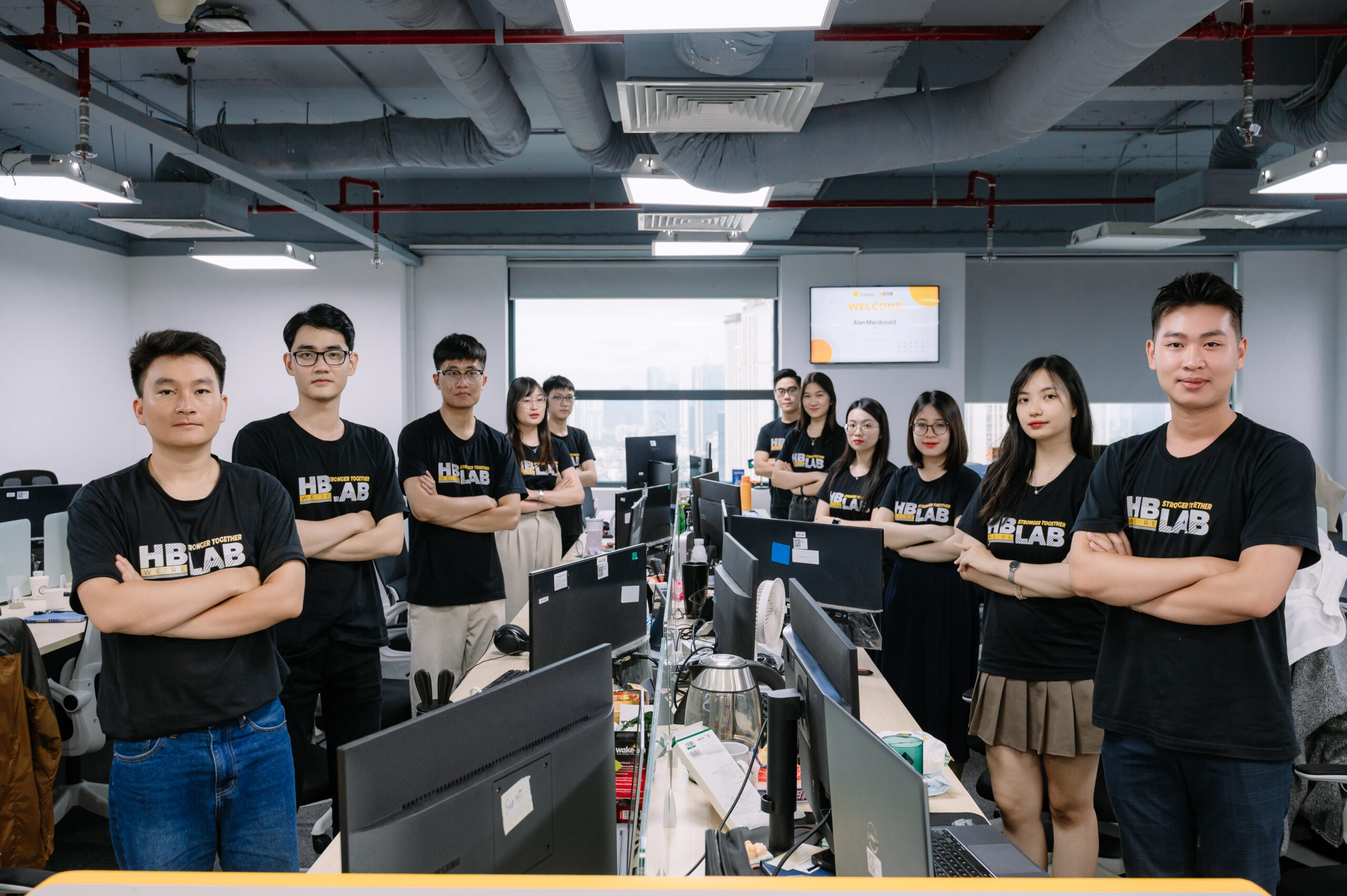
Key Services:
- Custom Software Development
- Web App System Development
- Managed Services
- Artificial intelligence and machine learning solutions
- Cloud Computing and SaaS Development
- Power Platform
- Staff Augmentation
- AI Solution
- AR-VR
HBLAB takes pride in a customer retention rate of 95%, underscoring its commitment to excellence and trustworthiness as a partner in digital transformation. Its ability to integrate emerging technologies into tailored solutions ensures that clients stay ahead in an ever-changing tech landscape.
3. KMS Technology
Overview: KMS Technology is known for its focus on software development, quality assurance, and product engineering. It primarily serves clients from North America, offering innovative solutions to drive business growth.
Key Services:
- Software testing and QA automation
- Agile software development
- DevOps consulting and implementation
- Product engineering services
4. TMA Solutions
Overview: TMA Solutions is one of Vietnam’s oldest and most established IT outsourcing providers. It offers services across industries, including telecommunications, finance, and healthcare.
Key Services:
- Software development and integration
- Data analytics and big data solutions
- Mobile and web application development
- Cloud services
5. NashTech
Overview: A division of the Harvey Nash Group, NashTech has earned a reputation for delivering innovative IT solutions. With a strong focus on enterprise clients, NashTech provides cutting-edge technology services to businesses worldwide.
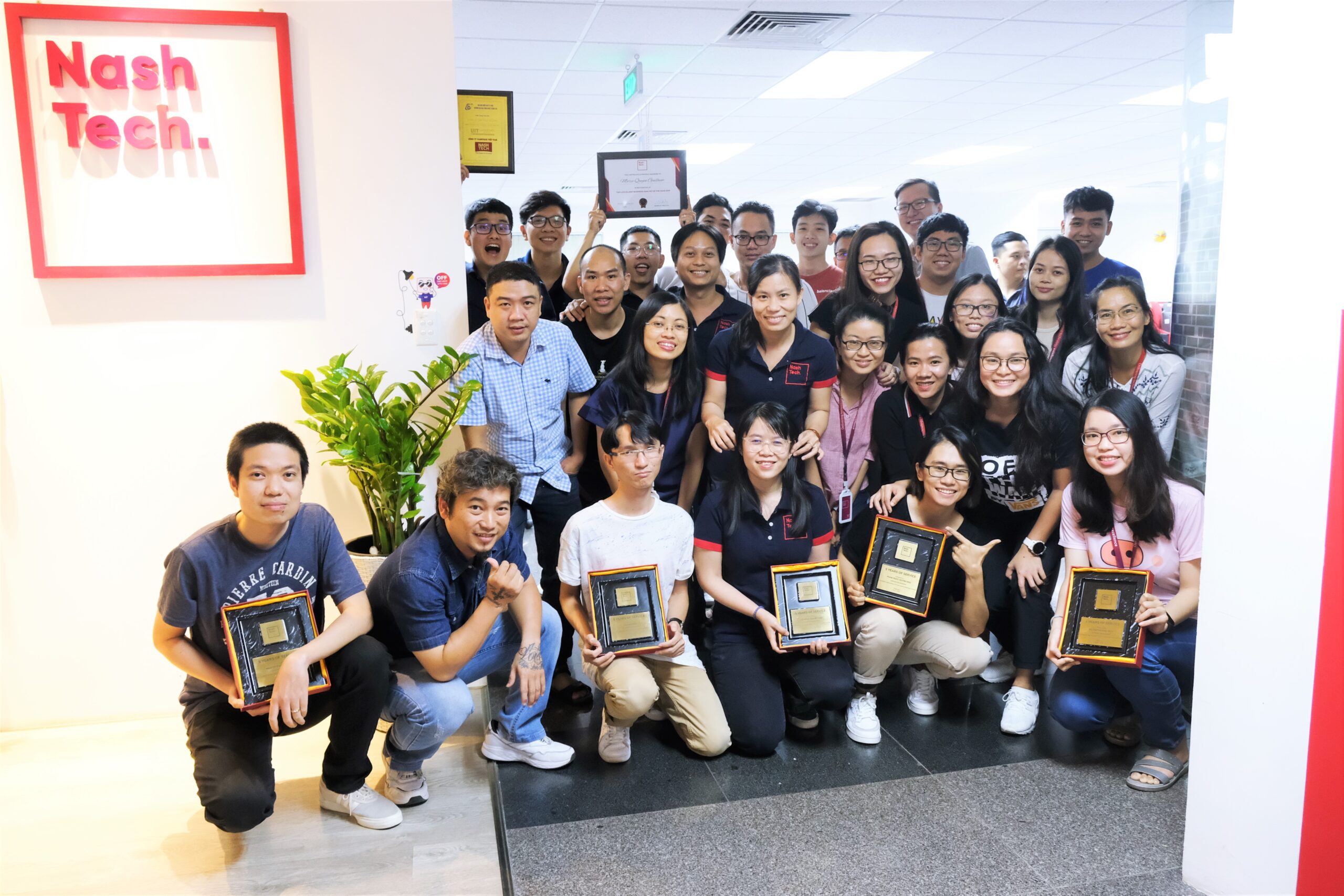
Key Services:
- Software development and digital transformation
- Cloud services and infrastructure optimization
- Enterprise-level quality assurance
6. CMC Global
Overview: Part of CMC Corporation, CMC Global leverages its parent company’s strong infrastructure to provide a wide range of IT services. It has partnered with leading tech giants like Microsoft and AWS to deliver state-of-the-art solutions.
Key Services:
- Cloud computing and SaaS development
- Custom software development
- Managed IT services
- AI and machine learning applications
7. Axon Active
Overview: Axon Active is a Swiss-Vietnamese company specializing in Agile software development. The company provides dedicated teams to deliver high-quality custom software solutions for startups, SMEs, and large enterprises.
Key Services:
- Dedicated development teams
- Custom software and mobile app development
- Agile consulting and implementation
8. S3Corp
Overview: 3Corp is a trusted software outsourcing provider offering development, maintenance, and testing services. It has served clients across multiple industries, including e-commerce, education, and healthcare.
Key Services:
- Custom software development
- Mobile app development
- Software testing and QA
- Maintenance and support
9. Orient Software
Overview: Founded in 2005, Orient Software is a reliable IT outsourcing company in Vietnam, delivering high-quality software development solutions to clients worldwide. The company specializes in supporting industries such as finance, healthcare, e-commerce, and education, with a strong focus on transparency, efficiency, and client satisfaction.
Key Services:
- Custom Software Development
- Web & Mobile Application Development
- Quality Assurance & Testing
- Al & Data Solution
10. Saigon Technology
Overview: Saigon Technology provides comprehensive IT outsourcing services, specializing in web and mobile app development. The company serves industries like fintech, healthcare, and e-commerce.
Key Services:
- Web and mobile app development
- UI/UX design and prototyping
- Cloud integration and deployment
- Agile development
Consider These Factors When Hiring the Best Software Development Services from Vietnam
If you’re looking to partner with a software development company in Vietnam, here are key factors to ensure a successful collaboration.
1. Technical Expertise and Experience
Vietnam is home to talented developers with expertise in AI, blockchain, mobile app development, and more. When selecting a partner, look for:
- Proven Experience: Portfolios of successful projects in your industry.
- Certifications: ISO or CMMI certifications for international standards.
- Specialization: Proficiency in the technologies or domain you need.
2. Cost Efficiency
Vietnam IT outsourcing is known for affordability, but quality matters. Consider:
- Transparent Pricing Models: Avoid hidden costs.
- Value for Money: Balance quality with pricing.
- Budget Flexibility: Favorable payment terms and options.
3. Communication Skills and Language Proficiency
Smooth communication ensures project success. Check for:
- English Proficiency: Most professionals communicate effectively in English.
- Cultural Compatibility: Familiarity with global work practices.
- Responsiveness: Regular updates and prompt replies.
4. Scalability and Resource Availability
Ensure your partner can adapt to changing project demands with:
- Access to Talent Pool: A wide range of skilled developers.
- Flexible Engagement Models: Options like dedicated teams or project-based models.
- Adaptability: Ability to embrace new technologies.
5. Reputation and Client Testimonials
Evaluate a company’s reliability by checking:
- Online Reviews: Platforms like Clutch or GoodFirms for feedback.
- Case Studies: Detailed examples of their work.
- References: Honest opinions from past clients.
6. Time Zone Compatibility
Vietnam’s GMT+7 time zone suits collaborations with Asia-Pacific, Europe, and parts of the US. Look for:
- Overlap in Working Hours: Enough time for meetings and updates.
- Flexible Schedules: Adjustments to match your time zone.
7. Quality Assurance and Post-Development Support
High-quality software and post-launch support are crucial. Consider:
- QA Processes: Rigorous testing to ensure bug-free software.
- Maintenance Services: Ongoing support and updates.
- Warranty Periods: Coverage for post-deployment issues.
8. Data Security and Intellectual Property Protection
Ensure your data and IP are protected with:
- Compliance with Regulations: Adherence to laws like GDPR.
- NDAs and Contracts: Legal safeguards for confidentiality.
- Infrastructure Security: Robust measures to secure data.
Wrapping Up
In conclusion, Vietnam IT outsourcing has solidified its position as a leading choice for businesses worldwide seeking cost-effective, high-quality, and innovative technology solutions. With its skilled workforce, government-backed IT ecosystem, competitive pricing, and strong cultural compatibility, Vietnam offers a comprehensive outsourcing package that meets the needs of global enterprises. As the demand for digital transformation grows, partnering with IT companies in Vietnam ensures businesses stay ahead of the curve while benefiting from exceptional service and collaboration. Choosing Vietnam for your IT outsourcing needs is not just a smart decision—it’s a strategic move toward long-term success.
Read more:
– Top 15 Most Reputable IT Outsourcing Companies in Singapore
– Why Vietnam is the ideal destination for IT outsourcing
– Vietnam IT Outsourcing Company Insights 2026: Market Landscape & Leading Providers
